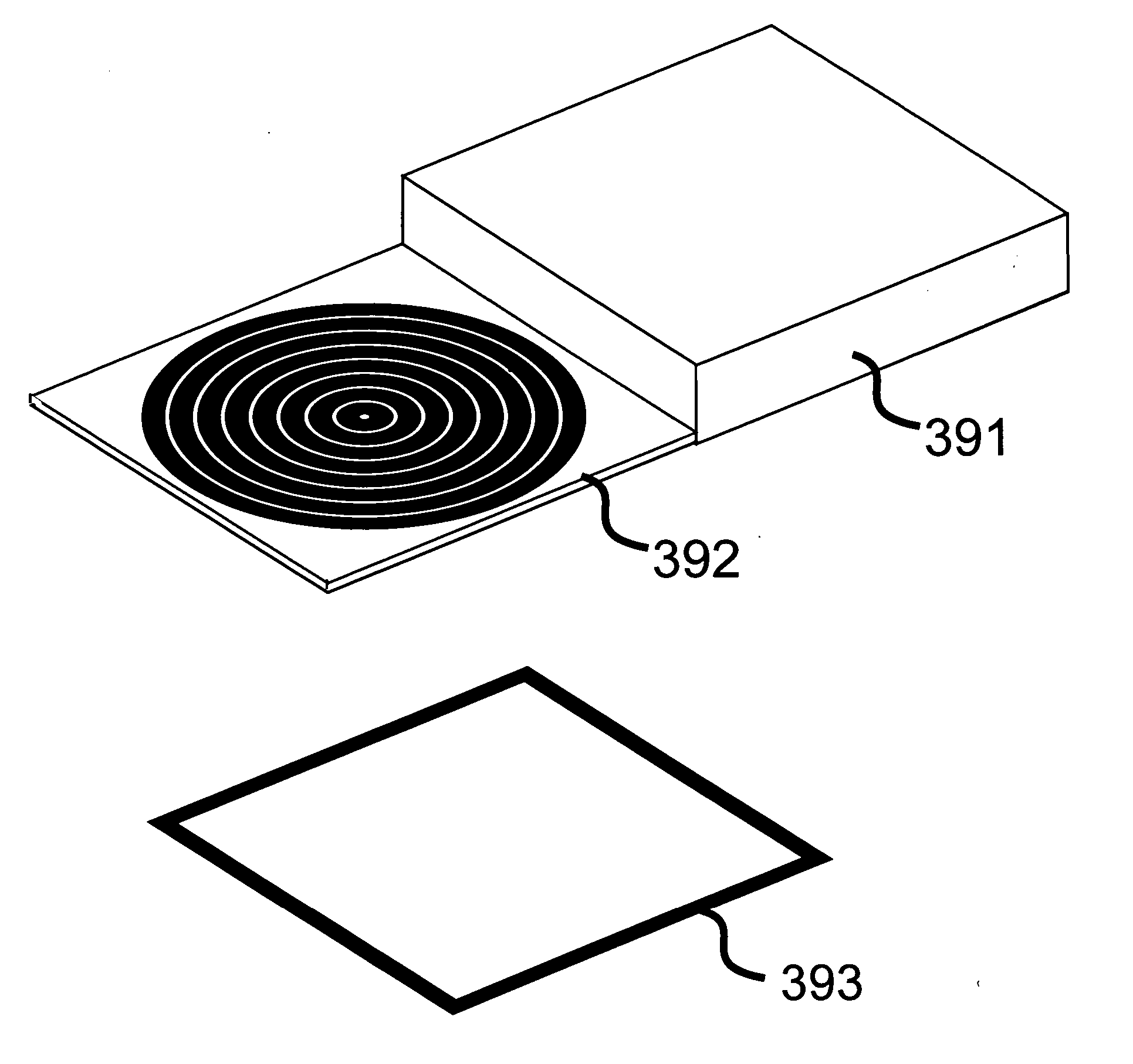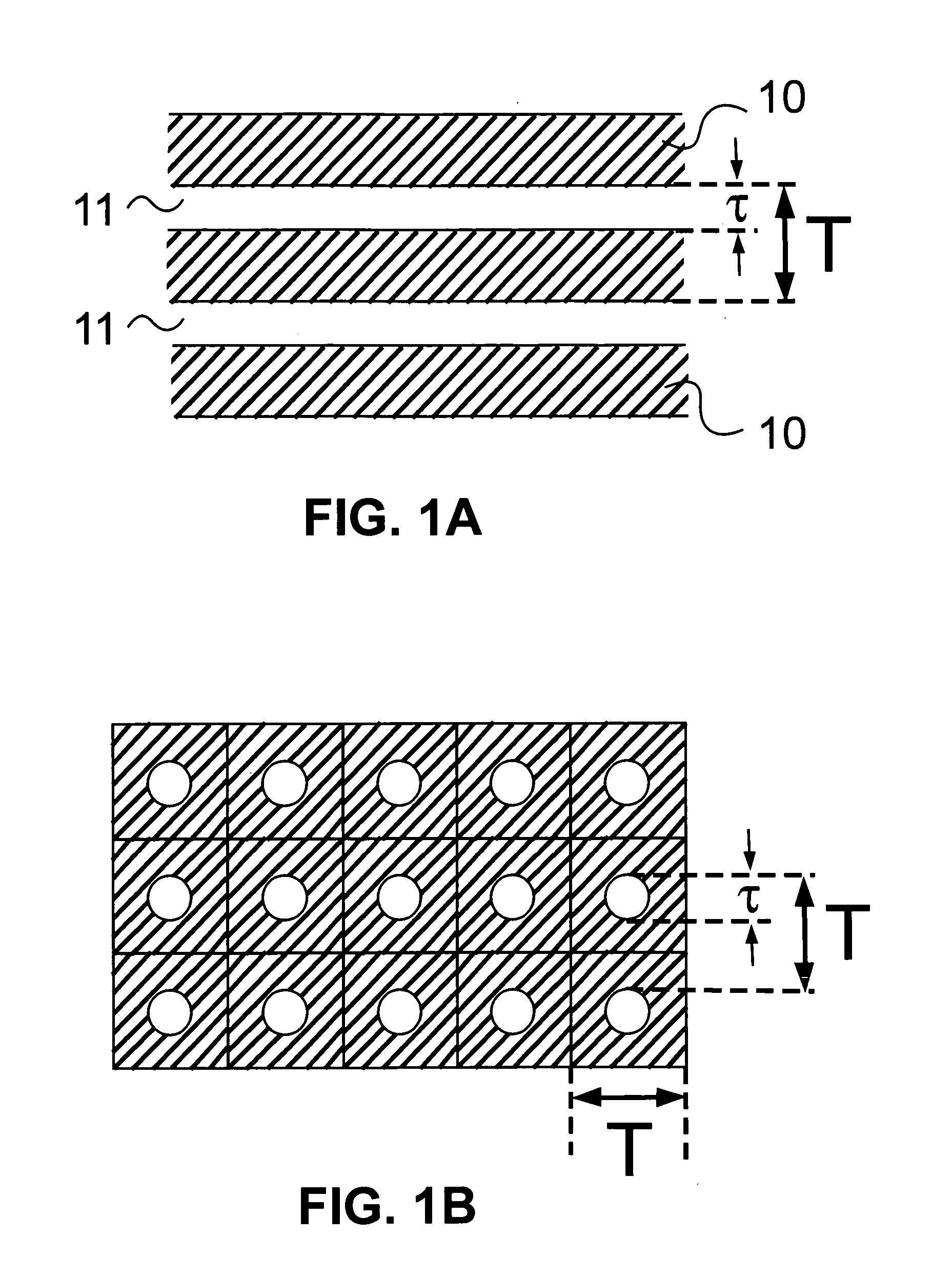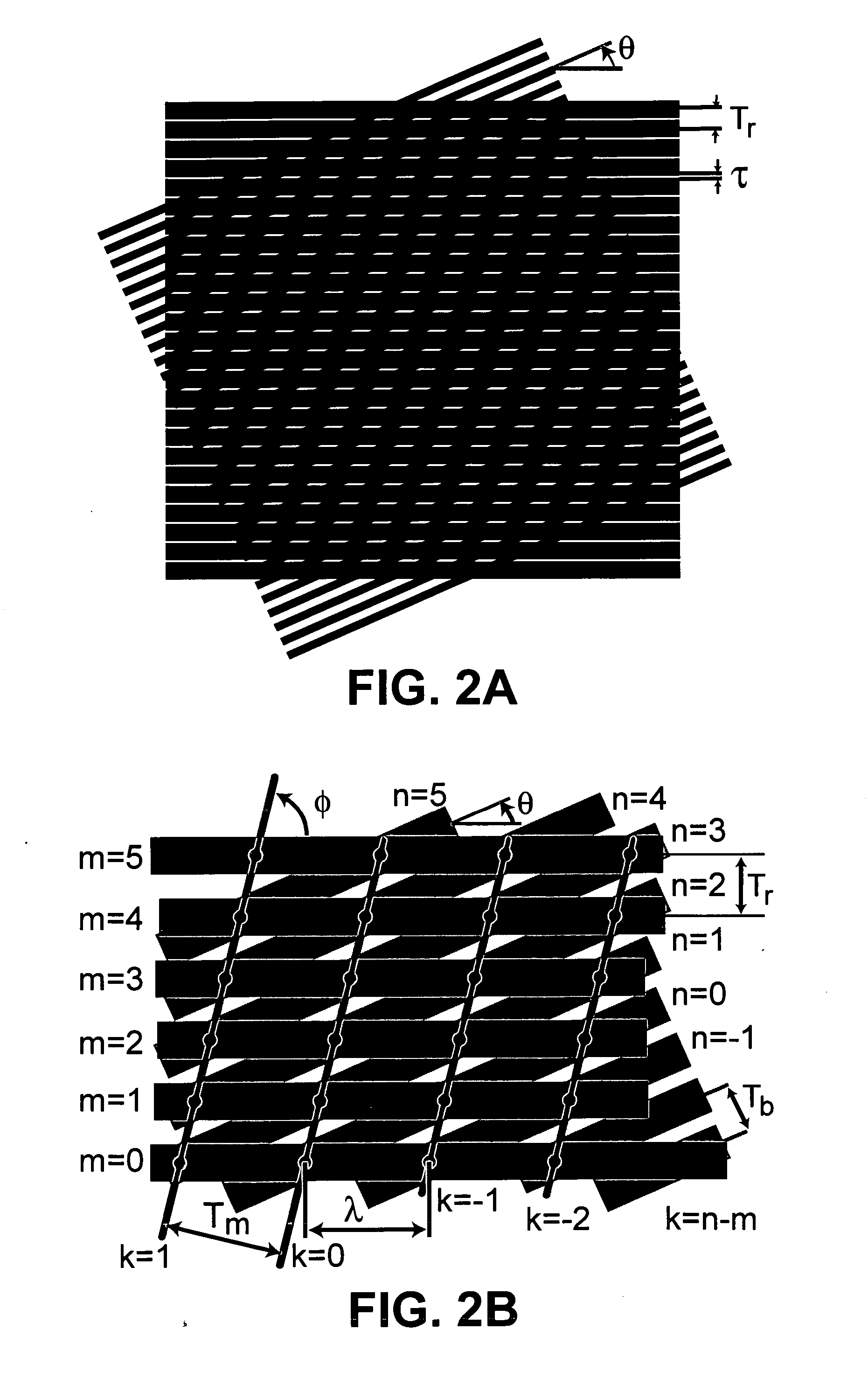Model-based synthesis of band moire images for authentication purposes
a band moire image and image synthesis technology, applied in the field of anticounterfeiting and authentication methods and devices, can solve the problems of affecting the smooth dislocation and possible transformation of the revealed latent image, increasing the cost of produced documents or goods, and increasing the cost of documents such as banknotes
- Summary
- Abstract
- Description
- Claims
- Application Information
AI Technical Summary
Benefits of technology
Problems solved by technology
Method used
Image
Examples
example a
Rectilinear Moiré Image and a Cosinusoidal Revealing Layer
[0153] In order to generate a rectilinear moiré image with a cosinusoidal revealing layer, we transform the original base and revealing layer shown in FIGS. 12A and 12B. We want the superposition of the transformed base and revealing layer to yield the same rectilinear moiré image (FIG. 19C) as the moiré image formed by the original rectilinear layers (FIG. 12C), i.e. m1(xt,yt)=xt and m2(xt,yt)=yt. We define the revealing layer transformation
g2(xt,yt)=yt+c1 cos (2 π(xt+c3) / c2) (25)
with c1, c2 and c3 representing constants and deduce from equations (21) the geometric transformation to be applied to the base layer, i.e.
h1(xt,yt)=xt+c1 cos (2 π(xt+c3) / c2) (tx / Tr)
h2(xt,yt)=yt+c1 cos (2 π(xt+c3) / c2) (tyTr) (26)
[0154] We can move the revealing layer (FIG. 19B) up and down on top of the base layer (FIG. 19A), and the moiré image shapes (FIG. 19C) will simply be translated (FIG. 19D) without incurring deformations. We can ...
example b
Rectilinear Moiré Image and a Circular Revealing Layer
[0155] We introduce a revealing layer transformation yielding a perfectly circular revealing line grating (FIG. 20B)
g2(xt,yt)=c1√{square root over ((xt−cx)2+(yt−cy)2)} (28)
where cx and cy are constants giving the center of the circular grating and c1 is a scaling constant. In order to obtain a rectilinear moiré image, we define the base layer transformations according to Eq. 24 h1(xt,yt)=xt+(c1(xt-cx)2+(yt-cy)2-yt)·txTrh2(xt,yt)=c1(xt-cx)2+(yt-cy)2·tyTr+yt·Tr-tyTr(29)
The resulting base layer is shown in FIG. 20A. FIG. 20C, shows that the superposition of a strongly curved base band grating and of a perfectly circular revealing line grating yields the original rectilinear moiré image. However, as shown in FIG. 20D, a small displacement of the revealing layer, or equivalently a small relative displacement of the position sampled by the revealing layer on the base layer yields a clearly visible deformation (i.e. distort...
example c
Circular Band Moiré Image and Rectilinear Revealing Layer
[0157] In the present example, we choose a circular moiré image and also freely choose the revealing layer layout. The desired reference circular moiré image layout is given by the transformation mapping from transformed moiré space back into the original moiré space, i.e. x=m1(xt,yt)=π-a tan(yt-cy,xt-cx)2·π·wxy=m2(xt,yt)=cm(xt-cx)2+(yt-cy)2(30)
where constant cm expresses a scaling factor, constants cx and cy give the center of the circular moiré image layout in the transformed moiré space, wx expresses the width of the original rectilinear reference band moiré image and function atan(y,x) returns the angle α of a radial line of slope y / x, with the returned angle α in the range (−π2(xt,yt)=yt. This rectilinear revealing layer is shown in FIG. 22B. By inserting the curvilinear moiré image layout equations (30) and the curvilinear revealing layer layout equation g2(xt,yt)=yt into the band moire layout model equations ...
PUM
 Login to View More
Login to View More Abstract
Description
Claims
Application Information
 Login to View More
Login to View More - R&D
- Intellectual Property
- Life Sciences
- Materials
- Tech Scout
- Unparalleled Data Quality
- Higher Quality Content
- 60% Fewer Hallucinations
Browse by: Latest US Patents, China's latest patents, Technical Efficacy Thesaurus, Application Domain, Technology Topic, Popular Technical Reports.
© 2025 PatSnap. All rights reserved.Legal|Privacy policy|Modern Slavery Act Transparency Statement|Sitemap|About US| Contact US: help@patsnap.com



